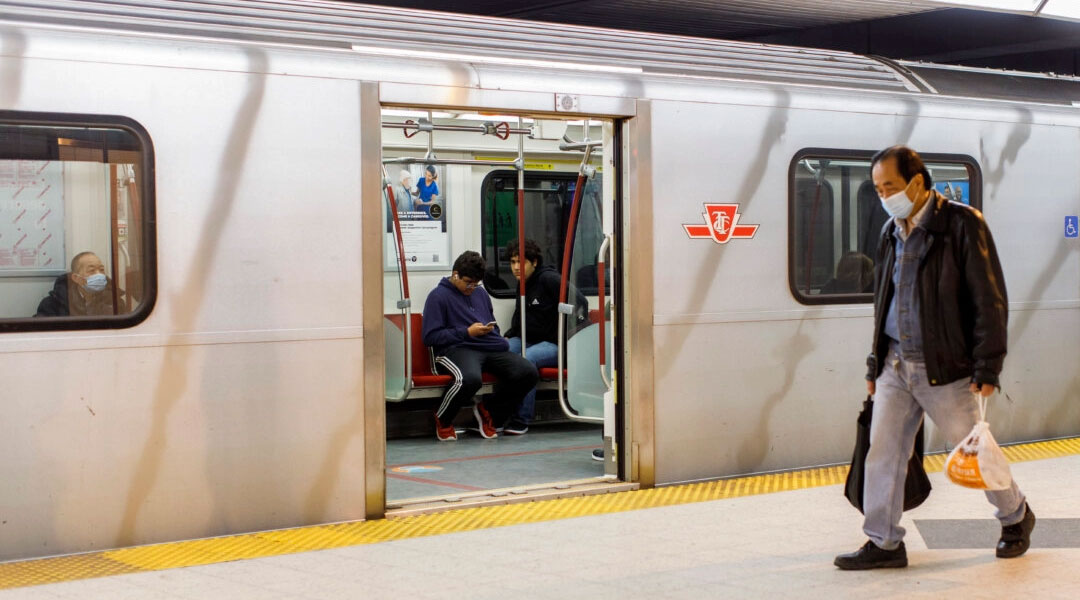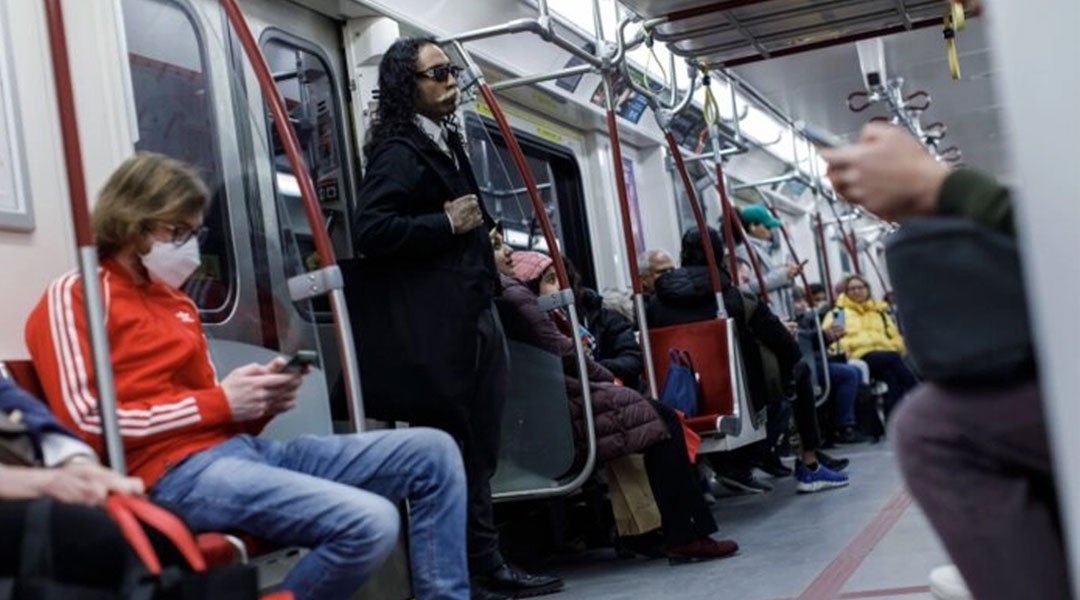Canada is seeing a long-term decline in transit use due to the widespread adoption of remote work, according to a recent report by Statistics Canada. The Infrastructure Department has warned that system deficits cannot be solely shouldered by taxpayers.
"The increase in work from home has reduced public transit use," said a StatCan report, "Research to Insights: Working From Home in Canada," as first reported by Blacklock's Reporter. The number of commuters using public transit dropped from 12.6 percent in May 2016 to 10.1 percent in May 2023, the report stated.
The report attributes the decline to various factors, including the rise in remote work that reduced passenger trips for former public transit commuters now working from home. This shift also eased traffic, prompting some non-remote workers to switch to car commuting.
In May 2023, 15.9 million Canadians usually commuted to work outside their homes, representing roughly 80 percent of the 19.9 million workers, according to the report. StatCan estimates that the surge in remote work from 2016 to 2023 potentially reduced commuters by about 2.6 million.
Moreover, the report notes that COVID-19-related health concerns, coupled with stay-at-home orders and physical distancing measures, might have permanently influenced some inpiduals to abandon public transit.
In a separate report titled "Urban Public Transit," released on July 19, 2023, StatCan revealed that fare revenues for all transit operations across the country were $46 million lower than monthly receipts before the pandemic. Despite a gradual recovery, ridership in May 2023 still lagged, standing at 22 percent below pre-pandemic levels.
Financial Burden
StatCan's findings come after the Department of Infrastructure warned that taxpayers alone may be incapable of shouldering the financial burden arising from deficits in transit systems."We heard the immense need for and the associated costs of major public transit projects cannot be met by governments on their own," the Infrastructure Department stated in the report "New Foundations for Public Transit Funding in Canada."
The COVID-19 pandemic prompted Parliament to directly subsidize municipal transit operations, including a $2.3 billion special transit grant as part of the Safe Restart Agreement.
The funding was linked to the 2020 threat of laying off 1,500 drivers and conductors at TransLink, previously known as the South Coast British Columbia Transportation Authority, according to Blacklock's Reporter. On Feb. 17, 2022, the cabinet approved an additional $750 million subsidy, which the Finance Department labeled as a "one-time payment."
In 2021, the federal government also unveiled a $14.9 billion investment for public transit projects over the next eight years. This encompasses a lasting annual funding commitment of $3 billion, starting in 2026–27.










